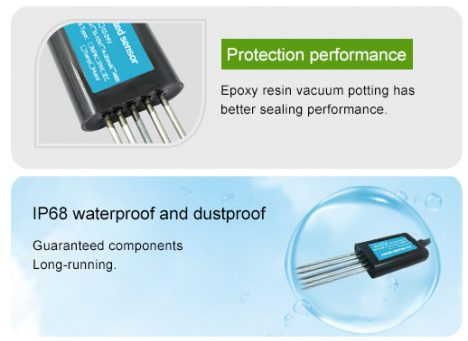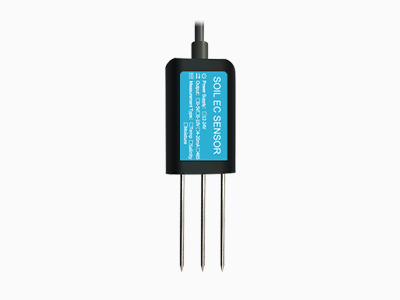Soil is a complex and dynamic ecosystem that plays a critical role in supporting plant growth, agricultural productivity, and environmental sustainability. Central to the health and fertility of soil are essential nutrients. Understanding the levels and distribution of these nutrients within the soil is crucial for optimizing agricultural practices, conserving natural resources, and ensuring food security. In recent years, the development and adoption of soil NPK sensors have revolutionized soil nutrient management, offering unprecedented insights into soil fertility and enabling data-driven decision-making for farmers.
The Role of NPK Nutrients in Soil Health
NPK nutrients are fundamental to the growth and development of plants, influencing various physiological processes . Nitrogen is essential for the formation of proteins and chlorophyll, phosphorus is critical for energy transfer and root growth, and potassium regulates water uptake and nutrient transport within plants. In the soil, these nutrients interact with the soil matrix, organic matter, and microbial communities. Understanding the spatial and temporal dynamics of NPK nutrients in the soil is essential for optimizing fertilizer application, minimizing environmental impact.

Traditional Soil Testing
Methods Historically, soil nutrient analysis relied on labor-intensive and time-consuming methods . While these methods provided valuable information about soil fertility, they were limited in their ability to capture the spatial variability of NPK nutrients across fields and landscapes. Moreover, the delay between soil sampling and result availability often hindered timely decision-making for farmers and land managers. Recognizing the need for real-time, spatially explicit soil nutrient data, the agricultural industry has turned to innovative technologies, including soil NPK sensors, to address these challenges.
The Emergence of Soil NPK Sensors
Soil NPK sensors represent a significant advancement in precision agriculture and soil fertility management. These sensors utilize cutting-edge technologies, such as spectroscopy, electrochemical analysis, and ion-selective electrodes, to rapidly and accurately measure the levels of nitrogen, phosphorus, and potassium in the soil. By integrating these sensors with data collection platforms, such as IoT (Internet of Things) systems and geographic information systems (GIS), farmers and agronomists can now access real-time, georeferenced soil nutrient data, enabling precise and targeted management of NPK nutrients at the field level.
Advantages of Soil NPK Sensors

The adoption of soil NPK sensors offers numerous advantages for soil nutrient management and agricultural sustainability:
Real-Time Monitoring: Soil NPK sensors provide instantaneous measurements of NPK nutrients, allowing for immediate assessment of soil fertility and nutrient status.
Precision Agriculture: By capturing spatial variability in soil NPK levels, these sensors enable precision agriculture practices, including variable rate fertilization and targeted nutrient application.
Data-Driven Decision-Making: Soil NPK sensors generate large volumes of data, which can be analyzed to derive actionable insights for optimizing fertilizer use, crop selection, and soil conservation practices.
Environmental Stewardship: By promoting efficient use of fertilizers and minimizing nutrient runoff, soil NPK sensors contribute to environmental stewardship and sustainable agriculture.
Cost-Effectiveness: The use of soil sensors can result in cost savings by optimizing fertilizer application, reducing overuse, and maximizing crop productivity.
Applications of Soil NPK Sensor
The applications of soil NPK sensors extend across various sectors, including agriculture, environmental science, and land management:

Precision Fertilization: Farmers and growers use NPK sensor to tailor fertilizer application rates based on real-time soil nutrient data, optimizing nutrient use efficiency and minimizing environmental impact.
Soil Health Monitoring: Environmental scientists and conservationists employ soil NPK sensor to monitor changes in soil fertility and nutrient levels, aiding in the assessment of soil degradation and ecosystem health.
Research and Development: Soil NPK sensor are utilized in research and development initiatives to study the impact of different agricultural practices on soil fertility, crop nutrition, and sustainable land management.
Land Use Planning: Soil NPK sensor support land use planning activities by providing detailed information about soil fertility and nutrient distribution, guiding decisions related to crop selection and land utilization.
While soil NPK sensor offer significant benefits, several challenges and considerations must be addressed to maximize their effectiveness and adoption:
Sensor Calibration and Validation: Ensuring the accuracy and reliability of soil NPK sensor through regular calibration and validation procedures is essential to maintain data quality and integrity.
Data Management and Interpretation: Managing and interpreting large volumes of soil nutrient data generated by NPK sensors requires robust data analytics and visualization tools to derive meaningful insights for end-users.
Cost and Accessibility: The initial investment in soil NPK sensor and associated technologies may pose financial barriers for some farmers and land managers, necessitating cost-effective solutions and support mechanisms for widespread adoption.
User Education and Training: Effective utilization of soil NPK sensor requires user education and training to ensure proper sensor deployment, data interpretation, and decision-making based on sensor outputs.
Conclusion
Soil NPK sensor represent a transformative technology that has revolutionized soil nutrient management and precision agriculture. By providing real-time, spatially explicit data on nitrogen, phosphorus, and potassium levels in the soil, these sensors empower farmers, agronomists, and environmental scientists to make informed decisions that optimize crop production, conserve natural resources, and protect the environment. As the demand for sustainable and efficient agricultural practices continues to grow, soil NPK sensors will play a pivotal role in unlocking the secrets of soil nutrients and promoting agricultural sustainability.
